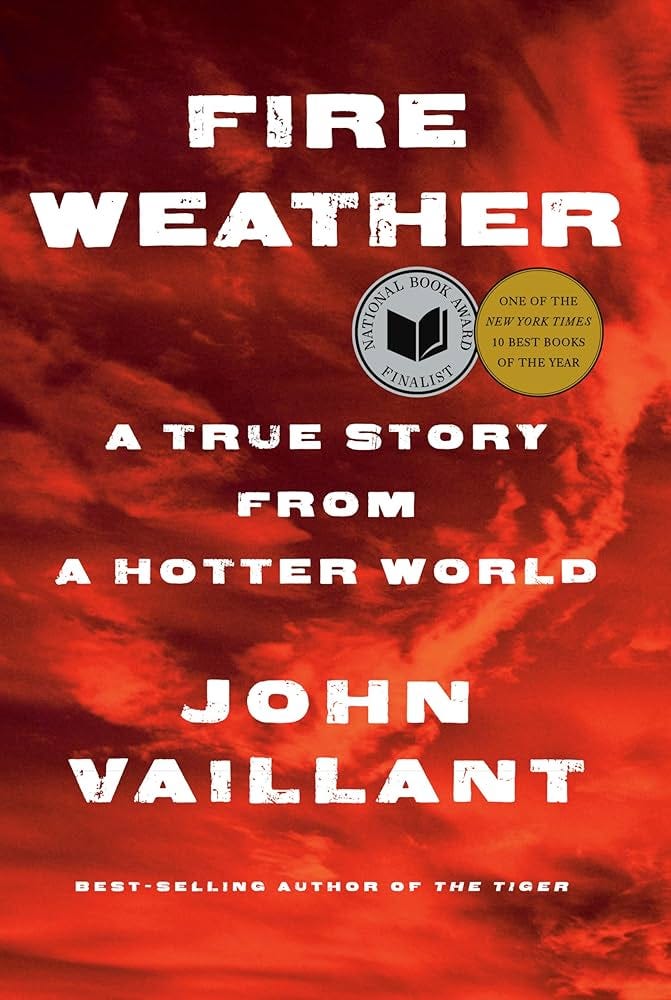There are books which are hard to read, but you are glad that you soldiered through them.
The book begins with the chronicle of the Fort McMurray Fire in Alberta, which started as a forest fire that was considered far from catastrophic but grew to incredible proportions and ended up consuming almost 1.5 million acres.
The book is incredibly hard to read at the beginning.
The impending doom and the absolute lack of preparedness of the town make for a stark dichotomy. At one point, officials refused to call in firefighters from Slave Lake who had dealt with a similar fire 5 years before to keep costs low, since Slave Lake firefighters were paid 3 times as much as at Fort McMurray.
They say you are often left with one or two sentences when you read a book. This one left many etched in my mind.
… hearing a wildfire burn sounds like listening to a freight train passing you by…
… the firefighters decided to create a firebreak inside the city by running a bulldozer through some houses. For each of us, our house is our memory palace and as the firefighters were driving through the homes they could see the contents of the home spill out, photos, books, sofas and beds. Things that were a part of someone’s life and their personality lay strewn all over the street…
… listening to a house burn is nothing like listening to the forest burn. You hear glass shattering, tiles breaking, metal warping and you can distinctly make out each sound…
The heat produced from some of these fires is so great that at times NORAD confused the energy signature to an atomic test. During the Chinchaga fire in 1950. The US thought that Canada was conducting Nuclear Tests without informing them.
Forest departments are trained to deal with forest fires and city fire departments train their men to put out a building fire. What is beginning to happen more and more are these fires at the Wild-Urban Interface (WUI) which neither is prepared to deal with. A forest officer is not trained to anticipate flammable liquids in the basement and the city fire officer never has to deal with fires that reach temperatures that are the same as that of the surface of Venus.
The second part of the book focuses on the science behind forest fires and climate change. The greenhouse effect was known before America was even a country. In the 19th century, the first predictions of global warming were made and by the 1950s definitive proof already existed. All of it was swept under the carpet and even today there is little to no change being made to address the problem truly.
The book is incredibly well written and I would think it should be prescribed as mandatory reading to every human on the planet.


